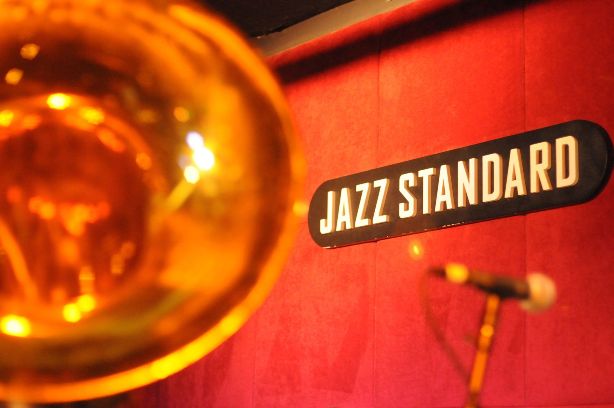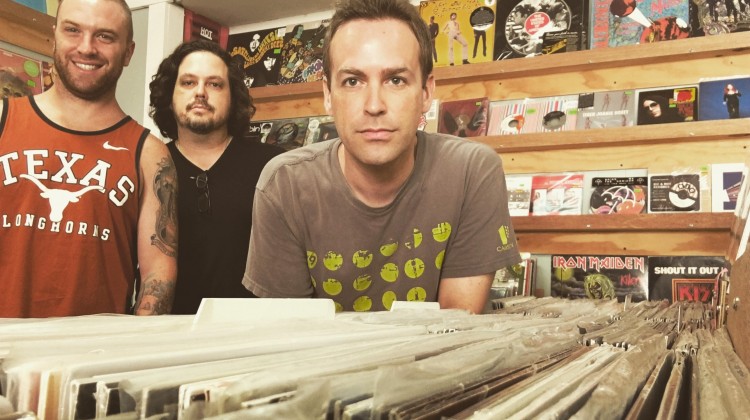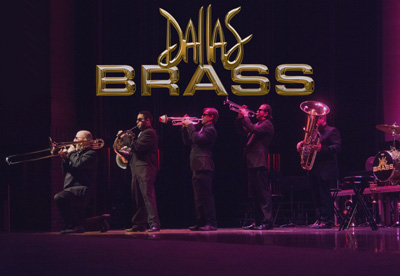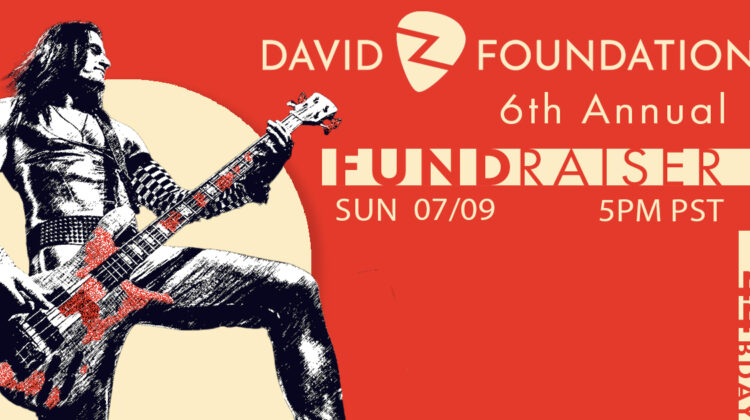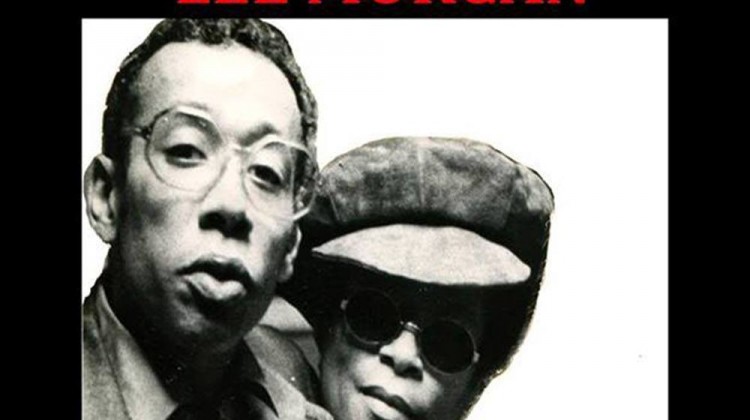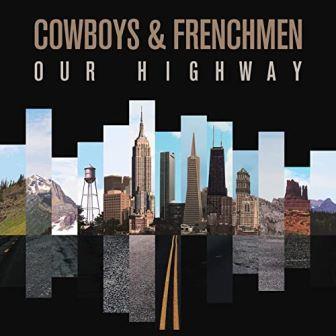Difficult though it is to successfully release any album during this century’s pandemic, Cowboys & Frenchmen, the New York City-based quintet of artistic originality and cohesive force, seized upon the opportunity of its earlier tour during pre-pandemic times to create an inspiring musical/video documentary of the lives of artistically skilled and thoughtfully observant jazz musicians.
Many times, the titles of jazz compositions refer to musically sketched sources of inspiration that remain unseen…or unknown. Not so with Cowboys & Frenchmen’s third album, Our Highway.
Cleverly, the video of the album cuts between the group’s live performance in September 2019 at SubCulture in New York and contrasting visual scenes of natural wonder and the bustle of city life. Those clips primarily capture the band’s experiences of outdoors rumination and the musical performance, indoors and out, of saxophonist Ethan Helm’s written scores. In addition to the video of the nightclub performance, the complementary views involve those of awe-inspiring towering pinewood forests approaching Helm’s hometown of Yorba Linda, California; the humid flatlands near saxophonist Owen Broder’s hometown of Jacksonville, Florida; and, for a jagged, bustling change of pace, their present hometown of New York.
And always roads.
The video features freeways on which the band traveled to their destinations. And the crowded streets of the New York. All of which form means of transportation connecting the country’s people who drive on them, as Cowboys & Frenchmen’s music connects the people who hear it, no matter what their differences.
Consisting of musical portraits of dissimilar locations—capturing their energies, their colors, their natural resources, their metropolitan puzzles of many parts fitting together, their beauty and their common purpose—Cowboys & Frenchmen’s mission, intentionally or not, resulted in a tribute to Americana’s majesty, as if the album were the result of an exciting empirical conclusion.
And so, Our Highway is an album of optimism apparently arrived at by discovery from the highways that the quintet traveled and perhaps also from the highways of their lifelong journeys. As a result, the album forms an appreciative portrait of Americana, initially intended or not, performed by excellent musicians sharing a common purpose. Helm’s complex through-compositions provide opportunities for heartfelt improvised personal expression too as the musicians reflect on stage about what they’ve seen across the country.
The primary piece of Our Highway is Helm’s “American Whispers” suite in three parts: “Pines,” “Streams” and “Mountains.” The most intentionally jarring contrast of the suite is the medley of the New York-centric “Gig Life” the whispering “Mountains” movement merged onto the same track. “Gig Life” starts with the personal, as Helm and Owen Broder rush down the stairs of their apartment buildings. Pianist Addison Frei’s bass-clef introduction rumbles as they carry their encased saxophones, and…perform side by side in front of the 181th-Street Station as travelers pass them by or snap cell-phone photos. Soon, the video editor adds another frame of their playing “Gig Life” in SubCulture. Interestingly, though the SubCulture gig happened in 2019, Helm and Broder wear masks when they perform outdoors to finish the “Gig Life.”
It turns out that Cowboys & Frenchmen’s “gig life” also documents their preparations for gigs beyond New York. Far beyond.
Once again, the musicians are shown carrying their instruments to a gig in Jacksonville as the video-documented performance continues to a change of mood expressed primarily by the rhythm section. As propulsive as the rhythm of New York, with off-the-beat accents and frenzied trills embellishing the initial six-note motive, “Gig Life’s” through-composition documents in adjacent video windows with successive tempos and moods the band members’ rush from their apartments, across streets and to their performance venue. The four simultaneous video segments switch from the streets of New York at night as they perform at the SubCulture gig to the streets of Nashville at night where Cowboys & Frenchmen play at Rudy’s Jazz Room. Onward goes the video as it cuts to their mundane preparations—ironing clothes, playing video games, standing up to eat a meal —before playing, just like that, at the Blue Bamboo Center for the Arts in Winter Park, Florida. The track moves quickly to resolution with a final onrush inspired by the view of awe-inspiring mountains, Broder switching to baritone sax as Helm continues to be the melodic voice of the composition. The saxophones perform an intertwined colloquy until Broder’s baritone sax solo eloquently expresses with a rich legato tone their awe-struck humility at the sight of California’s “Mountains (American Whispers)” at the conclusion of their travels to California.
The album’s first track, and the first track of the “American Whispers” suite, begins with the deceptively calming “Pines,” the accompanying video shooting into the tall trees. The band introduces their project with the two alto saxophones playing the quiet Americana theme in unison without a rhythm section for less than a minute before New York tumult intrudes musically through free improvisation. Frei takes over with a propulsive post-bop solo, O’Reilly and Honor prodding the proceedings as the video contrasts get underway. The images show Broder in meditative contemplation in Central Park, earbuds of course providing the music of his choice, before the quintet’s final swirl recaptures the scrambled liveliness of the city’s multitudes.
Just as Broder introduced the third movement of “American Whispers” with his own interpretative solo of the scenes they saw during as they traveled highways to and from gigs, so does Helm’s flute connect “Alice in Promisedland” with the following track of the suite movement, “Streams.” Alluding to the original motive, Helm’s solo is deceptively relaxing until the streams become a vigorous waterfall of New York images. After that, the quickened saxophonic counterpoint expresses again a slower unison statement of wonder at America’s natural beauty enabled by U.S. highways, this time to Jacksonville. Contrast, once again, occurs. “An Old Church” attaches as a medley to “American Whispers – Streams” when Helm, Broder and Honor nonchalantly walk up to the Gothic Revival doors of Old St. Andrews Church next to the Jacksonville Historical Society. Indeed they do perform, apparently upon discovery when impressed with the church’s visual appeal
Honor’s textures during the three-minute piece, “An Old Church” poignant in its simplicity—as well as Frei’s direct major chords during the juxtaposition of video scenes to SubCulture—suggest that Cowboys & Frenchmen, despite the group’s ironic name inspired by a David Lynch film, recall Matt Wilson’s continuing red-blooded devotion to the wonders of America throughout the albums he recorded. Furthermore, Helm’s improvisation on “Mountains,” with rhythmic accompaniment from Frei, O’Reilly and Honor, is reminiscent of an impassioned alto saxophone solo of the Maria Schneider Orchestra, whose sounds frequently honored, and/or imitated, the majesty of American nature. The comparison seems to be even more valid as “The Farmer’s Reason” not only is played as a gorgeous melodic major-key composition, but also as the video documentation of floral close-ups, rolling hills, dusty paths and finally, Cowboys & Frenchmen’s destination: a sunset, blazing orange and yellow, until the sun’s disappearance for the day at the end of the album. Their members’ music, as well as Wilson’s and Schneider’s, as based on childhood recollections of the joys in smaller towns, or, if not, their discoveries—more complicated than it would seem—of everyday Americans’ overall goodness, strength, optimism, natural wonder, devotion to family, community, and underlying common purpose. All three groups’ creative tensions arise from the differences of their hometowns’ atmospheres that remain in their hearts with that of New York’s, where they achieved recognition.
The rest of Our Highway presents even more contrasts for a balanced view of America, those views being those of the band’s members’ experiences during their travels. “Alice in Promisedland” (Promisedland being at first blush New York City—but no, Promisedland, broader than that, being America) begins innocently enough with O’Reilly’s slowly sauntering vamp and Frei’s glistening treble-clef coruscations. With Frei’s broad sustained chords, Helm’s fluted fluttering and Broder’s conversational alto sax contrapuntal interplay, the tune depicts marvelous natural observations; the relaxation resulting from them is disparate from New York’s never-ending energy.
“Where Is Your Wealth?” less than four minutes long, is a thoughtful question, quietly presently without embellishment, about the country’s values, somewhat similar in contrasting musical observations to Schneider’s masterpiece about the American’s nature-versus-online dichotomy, Data Lords. Both albums conclude with the importance of nature, whose presence diminishes from American awareness as the priorities of daily urgencies take over.
Our Highway required more than an improvisational performance before an audience, although the quintet’s gig at SubCulture forms a touchstone of the project. The project required forethought and commitment. The musicians of Cowboys & Frenchmen proved themselves to be not only top-notch musicians with their own sounds and vision. They also are adept videographers and editors who created a professional-quality document of their travels supported by Helm’s music based on his expectations before the commencement of their travels. Cowboys & Frenchmen doesn’t perform for audiences just as professional musicians. They also show for the appreciation of viewers the video clips of the lives of musicians as they create a positive thematic statement about America. One that was developed from meeting the people of America.
Artist’s site: cowboysandfrenchmen.com

